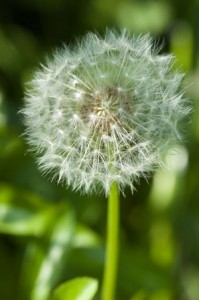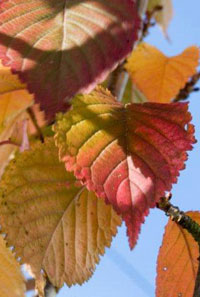Spending time in woodland – an escape from the tyranny of modern time

Nature is the biggest public clock, but it operates in ways that contrast with our rather industrialised way of measuring time. Nature's time is seasonal and much less uniform than the digital clock but it is also more forgiving. Things happen in a woodland when the time is right, rather than as a result of man-made regulation, and this very "natural" sense of time is what many people like about being in woodlands. Owners often tell us about how their woodland is an escape from modern life but it is particularly the escape from being a slave to clock-time which comes across most strongly. This enjoyment is of course linked to taking "time out" - it is a good thing to take time off work but it is a further escape to get away from being organised according to the clock.
Industrial time versus flower time
Time in Britain was not always uniform, but the coming of the railways required a national time to be adopted in the 19th century and the noose of time has been tightened ever since, with more and more precise and widespread measures of "industrial time": time-keeping devices becoming attached to everything from mobile phones to ovens and fridges. In the past, various people have proposed clocks which are much more in keeping with nature - Carl Linnaeus, the Swedish naturalist, designed a floral clock of flower hours in 1751 so that the "time" was shown by the opening and closing of different flowers from the Sow Thistle (5am to 12pm) to the Iceland Poppy (closing at 7pm).
http://en.wikipedia.org/wiki/Linnaeus%27_flower_clock
Such a clock will of course vary by season and by latitude but the idea was to plant a garden in such a way that you could tell the time by simply watching the flowers open and close.
Clock time and woodland time
Young children don't work to clock time but to nature's time, as every parent discovers: they sleep when they feel the need and eat when they are tired. Part of their "education" is not only to teach them to tell clock time but to teach them to fit in with patterns that others follow (eating elevenses at eleven) getting up when the alarm clock shows it is time to do so. Part of the beauty of spending time in a woodland or any wild space is to escape from the demands of clock time and children visiting woodlands seem to value this even more than adults. They express it in terms of "we could do what we liked" or "we liked the freedom of the woods".
 Many "primitive" societies use natural events to mark the passing of time. For example the Guarani-Kaiowa indians in Brazil would ask "how many times has the Guavira flowered in your life time?". Such nature-centred thinking also leads to festivals being dictated by natural events such as full moons; coastal communities time events in relation to tidal highs and lows.
Many "primitive" societies use natural events to mark the passing of time. For example the Guarani-Kaiowa indians in Brazil would ask "how many times has the Guavira flowered in your life time?". Such nature-centred thinking also leads to festivals being dictated by natural events such as full moons; coastal communities time events in relation to tidal highs and lows.
A woodland owners' calendar
Some people would like to see diaries and calendars with many more natural events in them (moons, tides, seasons) but this perhaps misses the point of natural time - it is hard to predict and maybe counterproductive to try to do so. Sometimes we observe that summer has "come early" or the leaf fall is "late" - this is an effort to force nature into the narrow tramlines of our own clock time - we might be better to acknowledge that summer comes at different times and that the woodlands will do what they do when it is right for them: the more in harmony we can get with natural/woodland time then the less we will need to follow our regimented clock time. People seem to like passing time in woodlands (not "spending time") to help them escape from the idea that "time is money" and to move away from clock time to natural time.
Comments are closed for this post.
